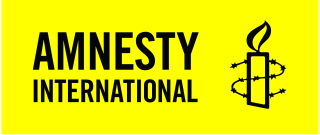
Politics of Bahrain takes place since 2002 in a framework of a constitutional monarchy where the government is appointed by the King of Bahrain, King Hamad bin Isa Al Khalifa. The head of the government since 1971 is Prime Minister Prince Khalifa bin Salman Al Khalifa and the Crown Prince is Prince Salman bin Hamad Al Khalifa, who serves as Commander of the Bahrain Defence Force. The parliament is a bi-cameral legislature, with the Chamber of Deputies elected by universal suffrage, and the Shura Council appointed directly by the king. MP Khalifa Al Dhahrani is the Speaker of Parliament.

The National Assembly is bicameral with the lower house, the Chamber of Deputies, having 40 members elected in single-seat constituencies for a four-year term. The upper house, the Shura Council, has 40 members appointed by the King of Bahrain, with the stated aim of giving a voice to minority communities and technocratic experts within the legislative process. Supporters of the system refer to long established democracies the United Kingdom and Canada operating with this bicameralism with an appointed upper chamber and an elected lower chamber. Opponents of this system point out that unlike the bicameral systems in the UK and Canada, the Bahraini system gives the unelected upper house equal or more legislative power than the elected lower house, allowing the King to control all legislation. Opponents also point out that the current system was imposed unilaterally by the King, violating the 1973 Constitution and a 2001 signed agreement with the Bahraini opposition.

Islam is the state religion in Bahrain. Due to an influx of immigrants and guest workers from non-Muslim countries, such as India, the Philippines and Sri Lanka, the overall percentage of Muslims in the country has declined since the late 20th century. Bahrain's 2010 census indicated that 90.2% of the population is Muslim. The last official census to include sectarian identification reported 83% as Shia of the Muslim population.

Al-Wefaq National Islamic Society, or Al-Wefaq for short, is a Bahraini political party. Although from 2006 to 2011 it was by far the single largest party in the Bahraini legislature, with 18 representatives in the 40-member Bahraini parliament, it was often outvoted by coalition blocs of opposition Sunni parties and independent MPs reflecting gerrymandering of electoral districts. On 27 February 2011, the 18 Al-Wefaq members of parliament submitted letters of resignation to protest regime violence against pro-reform Bahraini protestors.
Ali Salman Ahmed Salman is a Bahraini Twelver Shi'a cleric and the Secretary-General of the Al-Wefaq political society. In January 1995 the Bahraini government forcibly exiled him to Dubai for leading a popular campaign demanding the reinstatement of the constitution and the restoration of parliament during the 1990s Uprising. From there he made his way to London and sought asylum. He continued opposition activities from London, where he was associated with the Bahrain Freedom Movement. Salman returned to Bahrain in March 2001 in a general amnesty as part of a set of political reforms announced by King Hamad.

General elections were held in Bahrain on 25 November 2006 for the 40-seat Council of Representatives alongside municipal elections. There was a 72% turnout in the first round of polling. As expected by most observers, Shi'a and Sunni Islamists dominated the poll, winning a clean sweep in the first round of voting, while liberal and ex-communist MPs lost all their seats. Four candidates of the left-wing National Democratic Action made it through to second round run-off which was held on 2 December 2006.
In the 2000s in Bahrain the government instituted political reforms and relaxed economic controls.

The Bahraini uprising of 2011 was a series of anti-government protests in Bahrain led by the Shia-dominant Bahraini Opposition from 2011 until 2014. The protests were inspired by the unrest of the 2011 Arab Spring and 2011–12 Iranian protests and escalated to daily clashes after the Bahraini government repressed the revolt with the support of Gulf Cooperation Council and Peninsula Shield Force. The Bahraini protests were a series of demonstrations, amounting to a sustained campaign of non-violent civil disobedience and later some violent resistance in the Persian Gulf country of Bahrain. As part of the revolutionary wave of protests in the Middle East and North Africa following the self-immolation of Mohamed Bouazizi in Tunisia, the Bahraini protests were initially aimed at achieving greater political freedom and equality for the majority Shia population, and expanded to a call to end the monarchy of Hamad bin Isa Al Khalifa following a deadly night raid on 17 February 2011 against protesters at the Pearl Roundabout in Manama, known locally as Bloody Thursday.

Ayatollah Sheikh Isa Ahmed Qassim is Bahrain's leading Shia cleric and a politician. He is the spiritual leader of Al Wefaq, Bahrain's biggest opposition society. He was the leader and is the founders of Islamic Enlightenment institution.
A parliamentary by-election was held in Bahrain on 24 September 2011 following the withdrawal of 18 members of the largest political party in parliament, al Wefaq, in protest at governmental actions during the Bahraini uprising. Security forces closed Pearl Roundabout and attacked protestors in the village of Sanabis. The second round of elections were held on October 1, 2011
Mohamed Yousif Rashid Albuflasa is a Bahraini poet, writer, former independent candidate for the Bahraini Parliament in the 2010 Parliamentary elections and a member of the Bahraini youth parliament. He belongs to the Albuflasa Bedouin clan. Formerly a Bahrain Defence Force officer, he is now employed at the court of Crown Prince Salman bin Hamad bin Isa Al Khalifa.
The following is a timeline of events that followed the Bahraini uprising of 2011 from April to June 2011. This phase included continued crackdown, lifting of the state of emergency and return of large protests.
The following is an incomplete timeline of events that followed the Bahraini uprising of 2011 from July to December 2011. This phase saw many popular protests, escalation in violence and the establishment of an independent government commission to look into the previous events.
The following is an incomplete timeline of events that followed the Bahraini uprising of 2011 from January to August 2012. This phase saw the first anniversary protest of the Bahraini uprising, the largest demonstrations in the history, and the escalation of violent clashes between youths and security forces.
The background of the Bahraini uprising dates back to the beginning of the twentieth century. The Bahraini people have protested sporadically throughout the last decades demanding social, economic and political rights. Demonstrations were present as early as the 1920s and the first municipal election was held in 1926. Ruled by Al Khalifas since 1783, Bahrain was a British protectorate for most of the twentieth century. The National Union Committee (NUC) formed in 1954 was the earliest serious challenge to the status quo. Two year after its formation, NUC leaders were imprisoned and deported by authorities.

The Bahraini opposition refers to a group of political groups who are opposed to the Cabinet of Bahrain government and the ruling monarch of the Sunni House of Khalifa. Currently, the Bahraini opposition can be divided into the officially registered political parties, who demand reforms to the current political system, and the unregistered opposition groups. Most of the opposition is comprised from the majority Shia population of Bahrain.

During the 2011 Bahraini uprising, as many as 43 Shia mosques and tens of other religious structures including graves, shrines and hussainiyas were intentionally destroyed or damaged by the ruling Sunni Bahraini authorities in the country. The widespread action in Shiite villages across this island was seen as part of a government crackdown on Shiite dissidents, although Bahrain's Minister of Justice and Islamic Affairs, Sheikh Khalid bin Ali bin Abdulla al Khalifa, claimed that only mosques illegally built without permission had been targeted.

General elections were held in Bahrain on 22 November 2014, with a second round on 29 November in constituencies where no candidate received at least 50% of the vote. The elections were boycotted by the Shiite Islamist opposition. The government announced the voter turnout as 52.6%, although the opposition claimed it was only 30%.

Shia in Bahrain form 62 percent of the population in Bahrain. According to the Washington Institute, the views of Shia and Sunni leaders in Bahrain are similar to their Arab neighboring countries.












